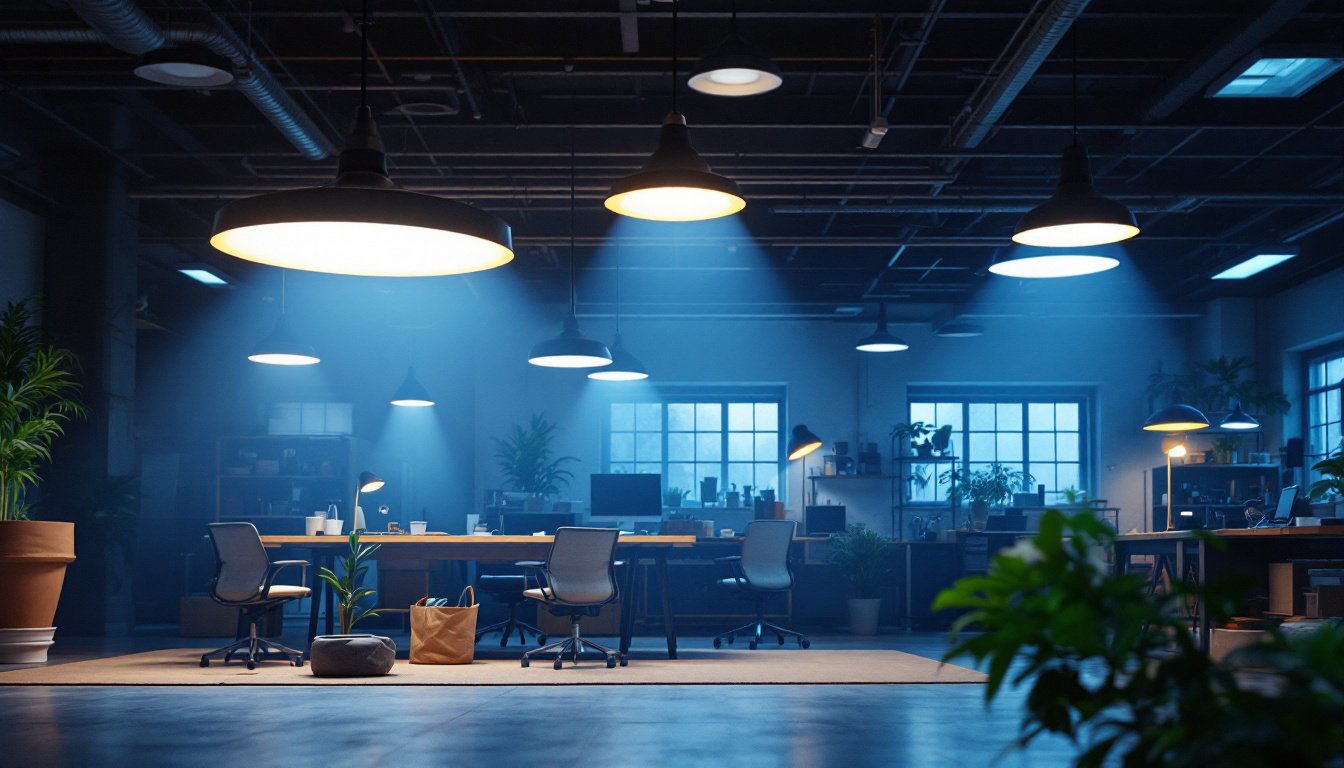
Lighting Parts & Accessories: How Lighting Contractors Can Avoid Issues
In the ever-evolving field of lighting design and installation, contractors face a myriad of challenges. From selecting the right components to ensuring compliance with regulations, the task can often feel overwhelming. However, a solid understanding of lighting parts and accessories can significantly mitigate potential issues. This article delves into various aspects of lighting components, offering insights that can help contractors navigate their projects more effectively.
When it comes to lighting installations, the quality of parts and accessories plays a pivotal role. High-quality components not only enhance the overall aesthetic but also ensure longevity and reliability. Contractors must prioritize sourcing materials that meet industry standards and are backed by reputable manufacturers. Investing in superior components can lead to reduced maintenance costs and fewer replacements over time, ultimately benefiting both contractors and clients alike.
Lighting systems comprise various parts, including fixtures, bulbs, ballasts, and transformers. Each component serves a specific function and contributes to the overall performance of the lighting system. For instance, selecting the appropriate bulb type—be it LED, incandescent, or fluorescent—can affect energy efficiency and light quality. LEDs, for example, not only consume less power but also have a longer lifespan compared to traditional incandescent bulbs, making them a more sustainable choice.
Moreover, understanding the compatibility of these components is crucial. For example, not all fixtures are designed to work with every type of bulb. Ensuring that the parts are compatible can prevent a host of issues, including flickering lights or complete system failures. Additionally, the wattage and voltage ratings of bulbs must align with the fixtures and ballasts used, as mismatches can lead to overheating or even electrical hazards, underscoring the need for careful selection and installation.
Accessories such as dimmers, switches, and mounting hardware can significantly impact the functionality of a lighting system. Contractors should be well-versed in the various options available and their respective benefits. For instance, using smart dimmers can enhance user experience by allowing for customizable lighting settings. These smart devices can be programmed to adjust automatically based on time of day or occupancy, providing both convenience and energy savings.
Furthermore, the choice of mounting hardware can affect the installation process and the overall safety of the lighting system. Selecting accessories that are durable and suitable for the specific environment—whether residential or commercial—can prevent future complications. In commercial settings, for example, heavy-duty mounting brackets may be necessary to support larger fixtures, while residential installations might prioritize aesthetics and ease of access for bulb changes. Additionally, considering the environmental conditions, such as humidity or temperature fluctuations, can guide the selection of materials that will withstand wear and tear over time, ensuring a reliable and effective lighting solution.
Even with the best components, issues can still arise during installation or operation. Identifying common pitfalls and understanding how to avoid them can save contractors time and resources.
One of the most frequent issues contractors encounter is electrical compatibility. This can arise when components are mismatched, leading to inefficient performance or even damage. To avoid this, contractors should always check the specifications of each part and ensure they align with the electrical requirements of the project.
Additionally, understanding local electrical codes and regulations is vital. Compliance not only ensures safety but also helps in avoiding costly fines or rework. Contractors should stay updated on any changes in regulations that may affect their projects. Regular training sessions or workshops can be beneficial for contractors to familiarize themselves with the latest standards and best practices, ensuring they remain compliant and informed.
Another common issue is inadequate lighting design, which can result in poorly lit spaces or excessive glare. Contractors should take the time to assess the specific lighting needs of each project. This includes considering factors such as the purpose of the space, the color of the walls, and the amount of natural light available.
Utilizing design software can aid in visualizing the lighting layout and making necessary adjustments before installation. Collaborating with clients to understand their preferences and requirements can also lead to more satisfactory outcomes. Furthermore, incorporating energy-efficient lighting solutions not only enhances the aesthetic appeal but also contributes to long-term cost savings and sustainability. Exploring options like LED fixtures or smart lighting systems can provide flexibility and adaptability to changing needs, ultimately improving user experience.
Choosing the right suppliers for lighting parts and accessories is crucial for a successful project. The reliability of the components directly affects the quality of the installation and the satisfaction of the client.
Establishing strong relationships with suppliers can lead to better pricing, access to new products, and reliable delivery times. Contractors should seek out suppliers who specialize in lighting products and have a proven track record in the industry.
Regular communication with suppliers can also help contractors stay informed about new technologies and trends, enabling them to offer innovative solutions to their clients. By fostering a collaborative partnership, contractors can gain insights into upcoming product launches and exclusive deals, which can significantly enhance their competitive edge in the market.
Before making purchases, contractors should conduct thorough research on the products they intend to use. This includes reading reviews, comparing specifications, and assessing the warranty offered by manufacturers. Investing time in research can prevent costly mistakes down the line.
Additionally, attending trade shows or industry events can provide valuable insights into emerging technologies and products. Networking with other contractors can also lead to recommendations for reliable suppliers and components. Engaging with industry professionals at these events can also spark creative ideas for lighting designs and applications, allowing contractors to stay ahead of the curve in an ever-evolving market.
Furthermore, leveraging online resources such as forums and social media groups dedicated to lighting can provide contractors with real-time feedback and experiences from peers. This collective knowledge can be instrumental in making informed decisions about which products to source, as well as understanding the nuances of different lighting technologies, such as LED versus traditional incandescent options. By tapping into these resources, contractors can ensure they are not only meeting client expectations but also pushing the boundaries of what is possible in lighting design.
Even the highest quality components can fail if not installed correctly. Therefore, understanding proper installation techniques is essential for lighting contractors.
Each lighting component comes with specific installation guidelines provided by the manufacturer. Adhering to these instructions is crucial for ensuring optimal performance and safety. Contractors should familiarize themselves with these guidelines before beginning any installation.
Moreover, using the right tools and equipment during installation can significantly reduce the risk of errors. Investing in quality tools not only improves efficiency but also enhances the overall quality of the work. Additionally, staying updated with the latest technology and tools in the lighting industry can provide contractors with a competitive edge, allowing them to deliver superior results that meet or exceed client expectations.
After installation, it is essential to test the lighting system to ensure everything functions as intended. This includes checking for proper illumination levels, ensuring there are no flickering lights, and verifying that all components are operating correctly.
Conducting a thorough inspection can help identify any issues early on, allowing for prompt resolution before the project is completed. This proactive approach can lead to higher client satisfaction and fewer callbacks. Furthermore, documenting the testing process and results can serve as a valuable reference for future projects, helping contractors to refine their techniques and maintain a high standard of quality in their work. Regular follow-ups with clients after installation can also foster strong relationships and encourage repeat business, as clients appreciate the commitment to ongoing support and service.
The lighting industry is constantly evolving, with new technologies and trends emerging regularly. Staying informed about these changes can give contractors a competitive edge and enhance their service offerings.
Energy efficiency is a significant focus in the lighting industry, with many clients seeking sustainable solutions. Contractors should be knowledgeable about the latest energy-efficient technologies, such as LED lighting and smart controls, to meet client demands.
Incorporating energy-efficient solutions not only benefits the environment but can also lead to cost savings for clients. Understanding local incentives or rebates for energy-efficient installations can further enhance the value proposition for clients.
Smart lighting technologies are becoming increasingly popular, allowing for greater control and customization of lighting systems. Contractors should familiarize themselves with smart lighting solutions, including app-controlled systems and automated lighting schedules.
Offering clients the option to integrate smart technologies can enhance their overall experience and satisfaction. Additionally, understanding how to install and configure these systems can open up new opportunities for contractors.
Lighting contractors play a crucial role in creating functional and aesthetically pleasing environments. By prioritizing quality components, understanding common issues, and staying informed about industry trends, contractors can avoid many pitfalls associated with lighting installations.
Investing time in research, building strong supplier relationships, and adhering to best practices during installation will not only enhance the quality of work but also lead to higher client satisfaction. In an industry that is constantly evolving, adaptability and knowledge are key to success.
Ultimately, by focusing on these aspects, lighting contractors can ensure that their projects run smoothly and efficiently, paving the way for a successful career in the lighting industry.
Ready to elevate your lighting projects with the highest quality components at the best prices? Look no further than LumenWholesale. Our spec-grade lighting products are designed to meet the rigorous demands of any project, ensuring durability and performance. With unbeatable wholesale prices and the convenience of free shipping on bulk orders, you can trust LumenWholesale to provide the value and reliability you need. Don’t compromise on quality or cost—explore our selection and start saving today.

Explore how flood light fixtures revolutionize lighting contractors’ projects by enhancing illumination quality, boosting energy efficiency, and offering versatile design options.

Explore how industrial LED light fixtures are revolutionizing modern lighting solutions with their energy efficiency, durability, and sleek design.

Explore the key challenges lighting contractors face in the ever-evolving industry of pathway illumination.

Discover the latest trends in LED lights made in the USA that every lighting contractor should be aware of.